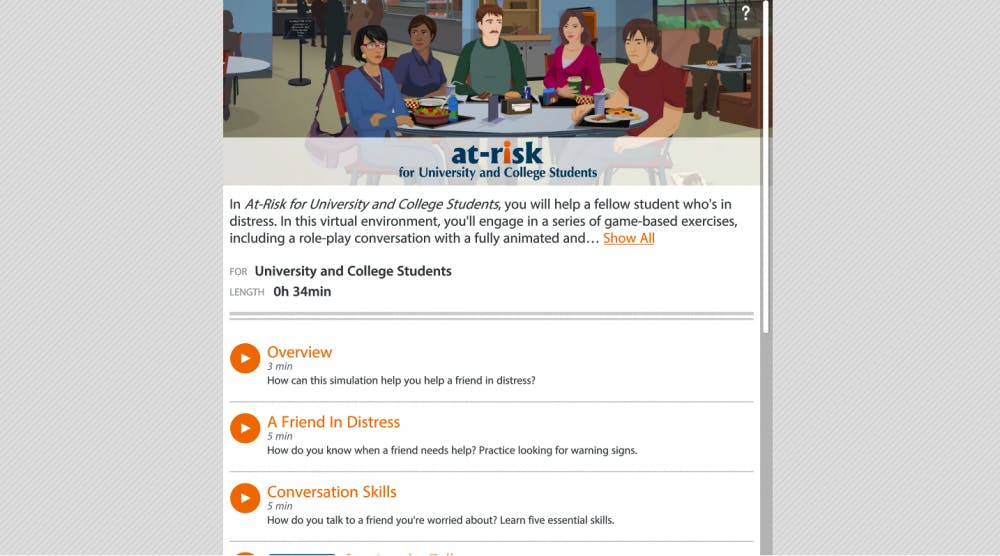The University has officially implemented Kognito, an online program devoted to mental health awareness, and has made the program mandatory for all incoming first-years.
Kognito is a 35-minute bystander intervention training program meant to teach students how to recognize signs of mental health distress in their peers and effectively intervene. The program uses avatars to lead students through certain role-play situations, teaching them how to respond to the needs of their friends and effectively connect them to help.
Josh Gardner ’20, a member of Undergraduate Student Government who helped test the program, likened it to a video game in which the user has to choose different options for how their virtual avatar will behave or what they will say. According to Gardner, the program specifically focuses on training students how to respond to friends in crises in ways that are encouraging and not overbearing or inconsiderate.
“It models situations that you could actually be in,” Gardner said. “It puts you through this complicated decision tree where you go through decision by decision."
He also said Kognito “gives you feedback on whether or not you made an appropriate response.”
Gardner cited the psychology concept of learning from observing modeled behavior. He said that by placing users in a modeled situation, Kognito could prove far more effective as an educational tool than other online orientation programs.
“The only way you could get better than that is by practicing with real people,” said Gardner.
USG president Rachel Yee ’19 said that although she's usually somewhat skeptical of the effectiveness of online orientation programs, she believes the engaging and immersive aspects of Kognito should prove beneficial.

“This is something I would personally recommend to my friends,” Yee said.
According to Dr. Calvin Chin, director of Counseling and Psychological Services, the program is meant to complement the other training programs first-years receive during orientation, such as AlcoholEdu and Not Anymore.
“One of the things that we noticed is that one area that wasn’t being covered was mental health distress,” Chin said.
Unlike the other orientation programs, first-years will complete the Kognito training in November instead of orientation week. According to Chin, this decision was made so that first-years could take the training after they had already met other students and felt more in tune with campus social life, making the training feel more relevant.

According to Yee, the three primary goals of the program are to educate students about mental health, fight stigma surrounding mental health, and to help create an environment where people feel comfortable enough to share their own experiences.
“As first-years, we all come from different backgrounds and a lot of people’s communities have never talked about mental health,” Yee said. “I think this is a good way to put it on people’s radars in a way that normalizes it.”








